Stephen O’Malley has big plans for the expansion of the engineering firm he founded 10 years ago – just so long as it stays true to its sustainability-oriented principles. Daniel Gayne reports
It is rare to come across a business leader as sincerely enthusiastic about the nuts and bolts of what he does as Stephen O’Malley.
Most, certainly, are proud of their work; many can speak persuasively about its importance. But for a chief executive to gleefully expound upon the geeky details of his firm’s work or earnestly set forth on its capability to remake the world is less common.
Such is the Dubliner’s zeal for the day-to-day work and social mission of Civic Engineers, the green solutions-oriented engineering business he co-founded around a decade ago, that it takes a couple of attempts for Building to get him to talk about the firm’s growth plan – and an ambitious vision it is.
According to its latest accounts, the business – which offers services in civils, movement, highways, flood risk, sustainable drainage systems and earthworks – turned over just over £11m, with a pre-tax profit of £291,000. It also outlined its intention to create a group with an EBITDA of around £5m within five years.
So, how did Civic Engineers get here? And how do they plan to keep the soul of the firm as they swim into some much bigger ponds?
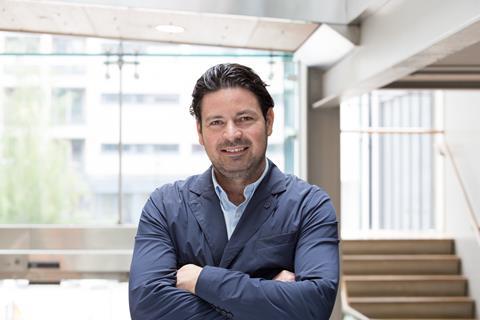
Civic Engineers was born out of the failure of a previous business, Martin Stockley Associates. O’Malley and his co-founder Julian Broster had been working together as engineers at that business since 2001, ultimately becoming minority director-shareholders.
But the great recession rocked the firm and after limping on for a time, it was liquidated in December 2013 – felled in part, says O’Malley, by the coalition government’s scrapping of regional development agencies. However, a lifeboat entity called Stockley Broster O’Malley Ltd had already been established in 2009 and that company ultimately bought the old business’ intellectual property and brought across a staff of around 10.
Martin Stockley himself, says O’Malley, “didn’t quite have the stomach to go again” and his departure in spring of 2013 gave the pair the opportunity for a fresh start under a new name. In September 2013, O’Malley and Broster began trading as Civic Engineers.
There followed the challenging start-up years, trying to pitch sustainability-oriented services to a relatively indifferent market and a cash-strapped public sector. “There was a four or five-year period where we were turning up and talking about SuDS [sustainable drainage systems], for instance, and the market was telling us, ‘We don’t know what that is’,” recalls O’Malley.
“Julian and I would pretty much meet every Thursday at lunchtime and ask, ‘Do we have enough money to get to next Thursday?’ But that is like any start-up really… When you set off on an enterprise like that, it is hand to mouth.”
Initially, the firm survived on a few Martin Stockley-era contracts that they managed to get novated to the new business. But, after a while, the strength of their work began to be recognised in the form of award nominations (including by this publication) and new, more prestigious contracts, buoyed by a re-orientation of the market towards sustainability.
The firm’s work has included being civil and infrastructure engineer on Leeds’ Climate Innovation District, one of the largest sustainable housing projects in the UK, as well as all three phases of Urban Splash’s huge redevelopment of the Park Hill estate in Sheffield.
To have poetry and culverts in the same sentence, that’s the plan
Stephen O’Malley, chief executive, Civic Engineers
But the scheme which O’Malley singles out for praise is the Mayfield Park job in Manchester, where it was civil and structural engineer. He said the client, PP O’Connor and The Mayfield Partnership, gave Civic Engineers the “freedom and ambition” to deliver Manchester’s first new park in more than a century in keeping with its sustainable agenda.
“The first part of that was the delivery of the park, which was opening up the [river] Medlock and using the park effectively as a huge, big SuDS feature, to absorb all the surface water for the whole footprint of the site and then slowly attenuate that and discharge it back down into the Medlock,” he says.
“At the same time we have daylighted a section of the Medlock, which was just abused from Victorian times as a resource.”
This attention to the existing geography of a place, and the celebration of it, is a key part of Civic Engineers’ philosophy. “Technical excellence”, he explains, might be the “bedrock” of a practice, but the important part is how that expertise is applied with emotional intelligence and in a way that is “far more empathetic to the communities and the geography of the places in which you get to work”.
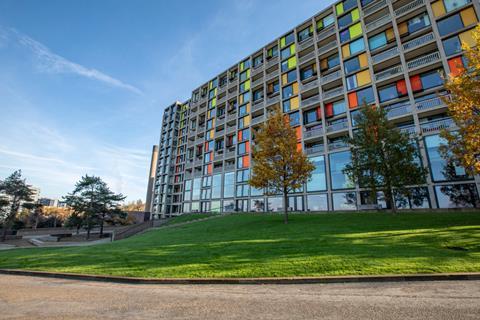
“Historically, engineers quite often come in and bleach the landscape of all of the previous development history,” he says. “Think of the very pragmatic approach the ODA [Olympic Delivery Authority] took to the Olympic site over in Stratford. I mean, they literally just bulldozed everything away and started with what they thought was a blank sheet of paper.
“And what was quite interesting, having subsequently worked on projects in that neighbourhood, was how you then recreate character, how you bring some of that character back … Whether it’s Stratford or east Manchester or Glasgow, there are people that have invested blood, sweat and tears into these neighbourhoods, and they’re really interesting stories to tell. How you capture them in the landscape is a fascinating way of telling those stories.”
At one point in our conversation, I point out to O’Malley that it is unusual to hear the term “emotional intelligence” used as he is using it – in the context of an earthworks job. He laughs: “We’ll take that – to have poetry and culverts in the same sentence, that’s the plan.”
A quote included on O’Malley biography page on the Civic Engineers website embodies this poetic sensibility and hints towards the leadership style at work within the company. It comes from Antoine De Saint-Exupéry, pioneering aviator and author of The Little Prince, and advises: “If you want to build a ship, don’t drum up the people to gather wood, divide the work, and give orders. Instead, teach them to yearn for the vast and endless sea.”
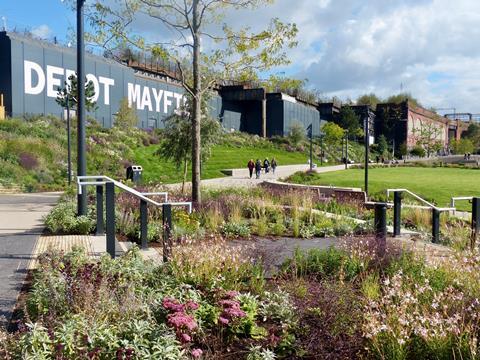
Civic Engineers currently employs around 160 staff and has offices in Manchester, London, Leeds and Glasgow. Its home in the capital is based in Bermondsey and backs onto the River Thames, with stunning views of the city’s twin financial centres.
And it is in this view that O’Malley finds the reference he is looking for to summarise his ambition for Civic Engineers and his frustration at the current state of the field.
“We are sat here, overlooking the Thames this morning, and Bazalgette had a profound impact on the health and wellbeing of Londoners while at the same time completely redesigning the urban landscape,” he says, referring to the great civil engineer responsible for creating London’s sewer system.
“I do kind of feel as though ,as a profession, there has been a sort of segregation and a silo-isation, a disaggregation of the engineering mindset into a series of specialisms that hasn’t quite served the best interests of society. Because if all you do is focus, expertly, on one dimension, it can be to the detriment of many, many other things.”
It is clear that O’Malley wants to build Civic Engineers so it can take on the most ambitious projects, and to bring this holistic mindset to the challenges therein – which brings us on to those plans for growth. “The primary goal is to have a greater positive impact through our work and do that in an environmentally sustainable fashion,” he says.
“The business metrics and the growth ambition is all oriented towards achieving that as the primary goal … The growth piece is important because it allows us to compete at a greater scale.”
O’Malley says he thinks the business could triple in size over the next half-decade through a combination of organic growth and acquisitions. Preparations for a significant expansion have already begun.
In September, the firm launched a standalone ground engineering consultancy called Civic Earth, which will be headed up by Dan Matthews, former managing director of Card Geotechnics.
Using my large company experience to help them shape for the future – I think that is really where my contribution lies
Michelle McDowell, non-executive director, Civic Engineers
That business, which has already secured a number of projects across Manchester, Blackpool and south-east England, will provide geotechnical and geo-environmental consultancy, as well as site investigation services.
Meanwhile, a sister company was launched in Ireland at the end of November, to be known as Civic. The business has already worked in O’Malley’s native country “in fits and starts”, including a raingarden pilot in Cobh, designs for three district centres and a best practice advice note on SuDS for the National Transport Authority.
The creation of a standalone practice for Ireland was a “very clear-headed business decision”, says O’Malley, who will lead the business.
Beyond these two launches, a third may be on the horizon, with O’Malley keen on adding a specialist sustainability offering, either through acquisition or setting up another dedicated function. All of this has come after a major reorganisation last July which saw the creation of Civic+ as a parent company to Civic Engineers, Civic Earth and Civic (Ireland).
This entity will give strategic direction to a growing stable of businesses, with O’Malley as chief executive, Broster as chief operating officer, Simon Edwards as chief financial officer and Dominic Miller and Michelle McDowell as non-executive directors.
“The balance of that team I think is really interesting because we have Michelle who has got this expert industry perspective and then we have Dominic who has got this expert business perspective,” says O’Malley.
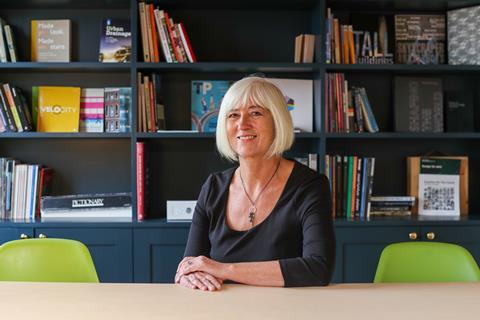
McDowell, a former vice-president of the Institution of Civil Engineers and former chair of the Association for Consultancy and Engineering, used to be able to see Civic Engineers’ Manchester office from across the canal in Manchester. “When I decided to leave BDP, and what really attracted me to Civic Engineers [was] really feeling very much at one with the whole sort of people-centric, environmentally responsible, but also holistic and collaborative approach,” she says.
With her experience working at BDP for 25 years, ultimately heading up its civil engineering group, she tells Building she can help Civic Engineers navigate its next stage of growth. “Using my large company experience to help them shape for the future, I think that is really where my contribution lies,” she says. “And the framework we have set up with Civic+ allows for that – it is a flexible framework that allows for that growth.”
She is also keen to help the firm to improve its diversity and inclusion work, which she says is “pioneering” already. “They are doing brilliantly in an environment where it is difficult to do very well because of the pipeline of talent,” she says.
“What’s interesting for me is the attitude of Julian and Stephen, where they’re not happy that it’s 60:40. They wanted to be 50:50.”
Part of holding true to these principles can sometimes mean making difficult decisions from a business perspective, says O’Malley. “Certainly, when we look at international work, we have had to turn down work in certain instances because the values of those different geographies didn’t align with our own, particularly when it comes to gender and sexual orientation and wider western democratic principles.”
If entire countries with millions of citizens can achieve these sorts of standards, why can’t a company with a few hundred people?
Stephen O’Malley
Whether Civic Engineers achieves the growth it is targeting is not entirely within its own power. Like many companies, it faced a challenging period last year in the aftermath of Liz Truss’ catastrophic mini-Budget, forcing the firm to undertake a full business review and to reduce staff numbers. In its accounts ended 28 February, 2023, revenue was 5% lower than anticipated and profit margins were lower than the year before.
Asked about navigating these choppy conditions, O’Malley employs a climate metaphor, stressing that the purpose of the new structure is to allow the business to focus on its longer-term goals.
“The shorter-term conditions that we are going to trade our way through is equivalent to some weather, and the weather of the last…” He pauses for a moment, apparently running through recent years in his mind. “Actually, I can’t remember the last time there was any decent weather, we seem to just go from storm to storm,” he says with a grin.
Stephen O’Malley CV

Born in Dublin, Ireland
1995 Graduates from the Dublin Institute of Technology (now Technological University Dublin) as a Bachelor of Engineering (civil engineering)
1995 Joins Brady Associates as a graduate engineer
1997 Moves to work at Kiernan Construction as a contracts manager
2001 Begins working at Stockley, where he works on creating Manchester’s New Islington neighbourhood and meets Julian Broster.
2013 Co-founds Civic Engineers with Broster as a climate and community-focused engineering consultant. Works on public realm schemes for Altrincham, Brixton and Haringey, while leading the firm as chief executive
2015 Joins the Design Council as an associate expert and subsequently takes a number of roles with other industry and public sector bodies, including advising the MHCLG’s high street task force, New London Architecture’s wellbeing panel and serving as the North-west chair of the Institution of Civil Engineers.
The actual and metaphorical peril of working in the UK, I suppose. Nonetheless, says O’Malley, ”we haven’t taken our eye off that climatic horizon and it is very much with that in focus that we have restructured our business”.
Asked how he plans to maintain a company culture that embraces curiosity and breadth of expertise as it becomes a much bigger firm, O’Malley gives an unusual answer, referencing the success of Scandinavian nations as measured by the World Happiness Index.
“If entire countries with millions of citizens can achieve these sorts of standards, why can’t a company with a few hundred people? If you can create that culture at that scale, there are lessons in there for us.”
The next five years will show whether Civic Engineers has what it takes to become one of the top players in the UK engineering business. But what it is clear is that the firm is not short of ambition. After all, when it comes to inspiration, O’Malley is looking not just at companies, but countries.




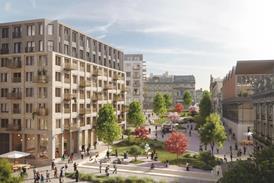
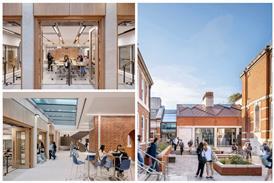







1 Readers' comment